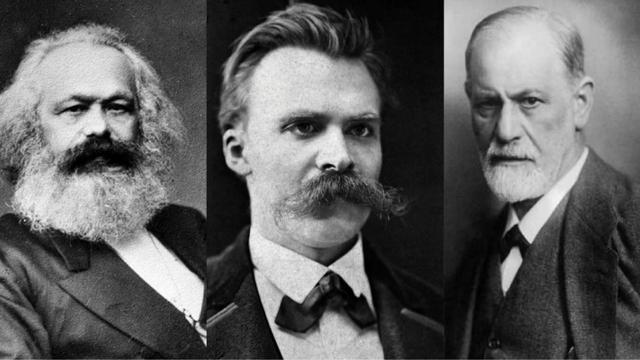Japan is emerging as the main battleground between forces that have attacked religious liberty for centuries and those defending it.
by Massimo Introvigne*
*A paper presented at the “Conference of Hope,” Cheongpyeong, 12 November 2022


In 1965, French philosopher Paul Ricœur wrote a book on the destructive influence of three “masters of suspicion” who created a widespread hostility against religion in the modern Western world: the founder of Communism, Karl Marx, the creator of psychoanalysis, Sigmund Freud, and the German philosopher Friedrich Nietzsche.
For Marx, religion was the “opiate of the people,” a drug keeping the poor quiet and preventing revolutions by promising them that they would be rewarded not in this life but in heaven, and even suggesting that the rich might end up in hell. By eliminating both poverty and the rich, the Communist Party will cause religion to disappear.
For Freud, religion was the delusional product of both neurological and psychological problems. Once modern psychology will cure these problems, there will be no need nor room for religion.
For Nietzsche, religion existed because the state failed to educate strong citizens. The weak majority created and embraced religions hailing the weak and the meek (particularly Christianity). When a new state will educate children to be strong and merciless, the religions will disappear together with the meek.
Marx’s theory became the basis of Soviet Communism. Nietzsche was liberally used and quoted by the Nazis. Freud gave new impulse to the already existing secular humanism, which came to dominate, if not always the governments, the academia and the media in many Western democracies.


Communism, Nazism, and secular humanism are different ideologies, but all try to eradicate religions, allowing only some religious forms subservient to their power. All three are still alive and kicking, with Communism dominating the most populous country of the world, China, secular humanism controlling many newsrooms, universities, and publishing houses in the West, and the Nazi model of a totalitarian state and the promotion of wars of aggression resurfacing in Putin’s Russia.
The ultimate goal of all three ideologies is to destroy all religions. However, through the tragedies of the 20th century, they learned that this is by no means easy. Religions are extraordinarily resistant to persecution.
Confronted with the impossibility of eradicating immediately all religions, all three ideologies decided to proceed gradually. They tried to reassure the larger, more powerful religions by telling them that they had nothing to fear, at least for the time being. They claimed they will destroy only the “bad” religions, leaving the “good” ones alone.
In China, the bad religions are called “xie jiao,” an old label used in Imperial China to designate religious groups that did not support the Emperor and now used against those that do not support the new Emperor, the Communist Party. In Russia, the groups not prepared to be strictly controlled by the state are designated as “extremist” and “liquidated.” In democratic countries, rather than to all religions, Freud’s model is applied to some minority religions labeled as “cults,” and accused of converting their members and gathering donations through “brainwashing.”
Dozens of groups were targeted, but three became the very symbol of “bad” religion and persecuted with special hatred. The Unification Church was targeted for its very effective criticism of Communism and the successes of the International Federation for Victory Over Communism. Scientology was attacked for its criticism of Freud, psychoanalysis, and the abuses of psychiatry. And the Jehovah’s Witnesses, who do not serve in the army and do not vote, were persecuted because their lifestyle is the opposite of the Nietzschean ideal of producing a strong and ruthless generation through a total state control and a militaristic education.


I have so far mentioned the West, but today the most important battle is fought in Asia, in Japan. Japan is not part of the West, but is an Asian country that, having lost World War II, had to recognize that religious liberty was necessary for democracy, admit its past mistakes, and introduce statutes protecting freedom of religion. Japan thus became an Eastern country with a Western notion of religious liberty, a bridge to the West and a model for all Asia.
Yet, the destructive ideologies were at work also in Japan, including Communism. They took advantage of the sarin gas attack of 1995 in the Tokyo Subway to make all movements they labeled as “cults” responsible for the crimes of Aum Shinrikyo, a peculiar group that had no similarities with the usual targets of the anti-cultists and could be more precisely describes as a tumor in the otherwise healthy body of Buddhism. Now they manipulate another moment of national grief, the Abe assassination.
The current campaign against the Unification Church/Family Federation is based on a number of demonstrably false arguments and on testimonies bearing false witness, as I have proved in several articles. Ultimately, however, it reveals the action of the same dark forces that are at work against religious liberty in other countries. Japanese Communists cannot forgive Reverend and Mrs. Moon for their contribution to containing and defeating Communism in their country, and indeed they have explicitly announced that they are now engaged in their “final war” against the Unification movement.
A Japanese extreme right jumped on the bandwagon not only because it is racist and hates any movement whose leaders are Korean but also because it resents the achievements of Mrs. Moon and the UPF in defending democracy and denouncing all forms of totalitarianism. Certain Japanese media and lawyers have several motivations, including just making money, but some of them also try to spread in Japan the international secular humanist ideology accusing any religious movement that gains success and visibility of “brainwashing.”


Make no mistake, it is not about the man who killed Abe. It is not about the Unification Church either, at least not only. It is about the soul of Japan and the global future of religious liberty, which some try to redefine as limited to a club of “good” religions—until the day when they will be attacked as well—and excluding those “bad” religions that an obscure lobby has decided to call “cults.”
The future of religion liberty will be largely decided by what will happen in Japan. Will it be a future of persecution or liberty? Of glory or shame? We are here to prevent the ideologies from imposing their answer. We are here to make our voice heard, to make the voice of those persecuted in Japan heard. And certainly we are not here to lose. I fully believe that if we stay together, if we do not give up, if we continue to fight, we will one day celebrate our victory.









